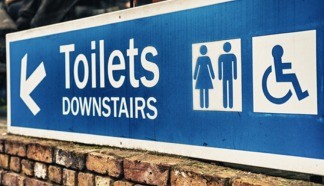 What is Female Urinary Incontinence?
What is Female Urinary Incontinence?
Urinary incontinence means you accidentally pass urine because of a loss of bladder control. Unintentional leakage can be a distressing problem, and may overwhelmingly affect the quality of life.
Women are twice as likely as men to experience incontinence. Women of all ages can be affected, although around one in three women over the age of 60 has problems with bladder control, which can result in depression and a reluctance to engage in physical or social activities.
Despite being such a common problem, the huge stigma attached to urinary incontinence means that almost half of sufferers wait at least five years before they get help. Yet female incontinence is nearly always due to a treatable, underlying medical condition.
If you prefer not to see your GP, Somerset Urology offer an excellent, discreet and sympathetic option for diagnosis and treatment.
Types of Female Urinary Incontinence
The two most common, accounting for over 9 out of 10 cases, are Stress Urinary Incontinence and Urge Urinary Incontinence. Less common are Mixed Urinary Incontinence, a combination of both which more often occurs in older women, and Overflow Incontinence where the bladder continues to dribble for some time after urinating.
Read more at Incontinence
Symptoms of Female Incontinence
Stress Urinary Incontinence
Leakage of small amounts of urine occurs during activities which increase abdominal pressure such as laughing, coughing, sneezing, exercising or lifting something heavy. Read More…
Urge Urinary Incontinence
A sudden, intense need to pass water is quickly followed by leakage, with not enough warning to get to the lavatory in time. There is a very frequent need to urinate, day and night. Read More…
Mixed Urinary Incontinence
Symptoms of both the above causes: you may leak urine if you cough or sneeze, and also experience very sudden and powerful urges to pass urine.
Risk factors that increase the chance of a woman developing urinary incontinence include:
- Pregnancy; giving birth vaginally
- obesity
- family history (a genetic link)
- disability – particularly conditions affecting the brain or spinal cord, such as multiple sclerosis, Parkinson’s Disease or dementia
- old age, especially after 70
Causes of Female Incontinence
Urge urinary incontinence occurs when the contractions of the muscles in the wall of the bladder involuntarily contract and/or the muscles surrounding the urethra suddenly relax.
Other conditions such as obesity and diabetes can cause bladder control problems, including excessive production of urine (polyuria) which doesn’t necessarily lead to incontinence but can cause urinary urgency and frequency.
Bladder problems can also be a result of more serious health conditions.
Diagnosing Female Incontinence
Our experienced staff, who have special training in urological problems in women, will take a history of your complaint as well as any illness, medication and recent surgery. A physical examination will look for medical conditions, and bladder capacity may be measured. Other tests include a stress test that imitates the conditions where leakage typically occurs, and analysis of urine and blood for evidence of infection or other causes.
Should those tests be inconclusive, an ultrasound can give a visual image of the urinary tract, or a thin tube with a tiny camera can be inserted into the urethra and used to see the inside of the urethra and bladder (cystoscopy). There are also techniques to measure pressure in the bladder and the flow of urine.
Treating Female Incontinence
Firstly, try cutting down on alcohol and drinks that contain caffeine, such as tea, coffee and cola. These cause your kidneys to produce more urine and can irritate your bladder. But do drink enough fluid to keep your kidneys, bladder and urethra in good shape – that’s six to eight glasses a day. Too little is as bad as too much, although to save having to get up during the night, try drinking less in the hours before bed.
If you are obese, or even just overweight, the fat inside your body could be pressing on your bladder. Losing weight has many benefits; restored continence is just one of them. A balanced diet containing lots of fruit, vegetables and fibre will also help with constipation, relieving more than pressure on your bladder.
Keeping active can help prevent a number of serious health conditions, including urinary incontinence.
Other treatments for Female Incontinence
There are other, rarer types of female incontinence. To find out more, go to the NHS Website.
